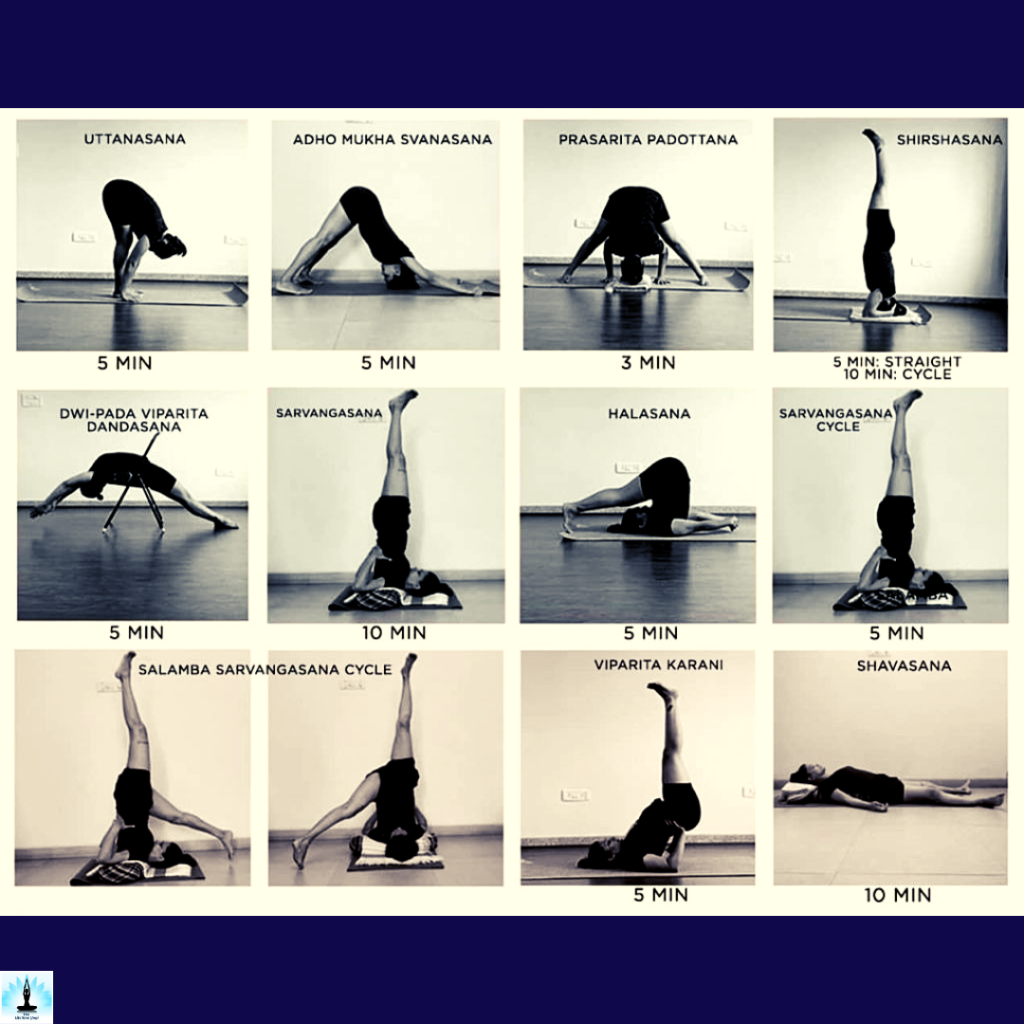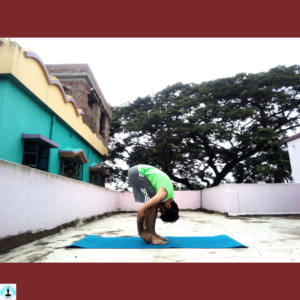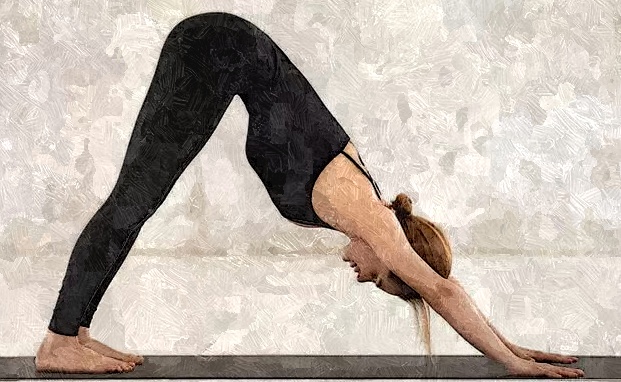Introduction – How does Yoga Affect the Immunity System? 8 Best Yogasanas to Recover Immunity System Quickly
In today’s fast-paced world, maintaining a strong and resilient immune system is crucial for overall health and well-being. While there are various factors that contribute to a robust immune system, incorporating yoga into your routine can be a powerful way to support and enhance your body’s natural defenses.
Yogasanas, or yoga poses, not only promote physical strength and flexibility but also have a profound impact on the immune system. In this blog, we will explore eight yogasanas that can contribute to building a stronger immune system.
Table of Contents
What Is the Immunity System in Our Body?

The immune system is a complex network of cells, tissues, and organs that work together to defend the body against harmful invaders, such as bacteria, viruses, fungi, and other pathogens.
Its primary function is to recognize and neutralize potential threats while distinguishing them from the body’s own healthy cells and tissues. The immune system plays a crucial role in maintaining the body’s overall health and protecting it from infections and diseases.
Key Components of The Immune System Contain:
White Blood Cells (Leukocytes)
These are the primary cells of the immune system and are responsible for identifying and destroying invaders. There are different types of white blood cells, such as lymphocytes, neutrophils, monocytes, eosinophils, and basophils, each with specific functions in the immune response.
Antibodies
These are proteins produced by certain white blood cells called B cells. Antibodies recognize and bind to specific antigens (foreign substances) on pathogens, marking them for destruction by other immune cells.
Complement System
Comprising a group of proteins, the complement system enhances the ability of antibodies and phagocytic cells to eliminate pathogens. It also plays a role in inflammation and immune system regulation.
Lymphatic System
This system includes the spleen, thymus, lymph nodes, and lymphatic vessels. Lymphocytes circulate through the lymphatic system, and lymph nodes act as filters, trapping and destroying pathogens.
Bone Marrow and Thymus
The bone marrow is responsible for producing blood cells, including white blood cells. The thymus is a gland where certain white blood cells (T cells) mature and become capable of recognizing specific antigens.
The immune system operates through two main types of responses
Innate Immune Response
This is the immediate, nonspecific defense mechanism that provides the first line of protection against pathogens. It includes physical barriers (like the skin), chemical defenses (such as stomach acid), and certain white blood cells that quickly recognize and attack invaders.
Adaptive Immune Response
This is a specific and targeted response that develops over time as the immune system encounters and “learns” about specific pathogens. It involves the production of antibodies and the activation of specific white blood cells to mount a more precise and powerful defense against recognized threats.
How does Yoga Affect the Immunity System? Benefits of Yoga to Improve Immunity System Quickly

Yoga has been recognized for its holistic benefits on both physical and mental well-being, and its positive impact on the immune system is no exception. The practice of yoga involves a combination of physical postures, controlled breathing (pranayama), meditation, and relaxation techniques.
Together, these elements contribute to several mechanisms that can enhance and support the immune system. Here’s how yoga affects the immune system:
Stress Reduction
Yoga is well-known for its stress-reducing effects. Chronic stress can weaken the immune system over time. The relaxation and mindfulness aspects of yoga, particularly during practices like meditation and deep breathing, activate the body’s relaxation response, reducing stress hormone levels and promoting a more balanced immune function.
Enhanced Circulation
Many yoga poses involve gentle stretches and movements that stimulate blood circulation throughout the body. Improved circulation means better transportation of immune cells, antibodies, and nutrients, allowing the immune system to function more efficiently.
Lymphatic Flow
The lymphatic system is a key component of the immune system, responsible for removing waste and toxins from the body. Certain yoga poses, especially inversions like Downward-Facing Dog and Shoulder Stand, encourage the flow of lymphatic fluid, facilitating detoxification and supporting immune function.
Improved Respiratory Function
Pranayama, or breath control, is a fundamental aspect of yoga. Techniques like deep belly breathing and alternate nostril breathing enhance lung capacity and efficiency. Proper oxygenation is essential for immune cell function, and these practices contribute to optimal respiratory health.
Balanced Endocrine System
Yoga has been shown to positively influence the endocrine system, which includes glands like the thyroid and thymus. Poses that involve gentle compression of these glands, such as Cobra Pose (Bhujangasana), can help regulate hormones and support immune function.
Mind-Body Connection
The mind-body connection is a central tenet of yoga philosophy. When the mind is calm and focused, it positively influences the body. The relaxation response initiated during yoga practices can modulate the immune system, promoting a state of balance and harmony.
Reduced Inflammation
Chronic inflammation is associated with various health issues, including compromised immune function. Regular yoga practice has been linked to a reduction in inflammatory markers in the body, potentially creating a more favorable environment for the immune system.
Enhanced Sleep Quality
Adequate and quality sleep is essential for a well-functioning immune system. Yoga’s calming effects, especially before bedtime, can contribute to better sleep, indirectly supporting immune health.
What are the Signs of a Weak Immunity System?
A weakened immune system may manifest through various signs and symptoms, indicating that the body’s ability to defend against infections and illnesses is compromised. Here are some common signs of a weak immune system:
- Frequent Infections: Individuals with a weakened immune system often experience recurrent infections, such as respiratory infections, urinary tract infections, or skin infections.
- Slow Healing: Wounds, cuts, or injuries may take longer to heal in individuals with a compromised immune system.
- Chronic Fatigue: Persistent fatigue and a general feeling of tiredness may indicate a weakened immune response.
- Autoimmune Disorders: Conditions where the immune system attacks the body’s own cells, such as rheumatoid arthritis, lupus, or celiac disease, suggest an immune system dysfunction.
- Digestive Issues: Problems like frequent diarrhea, bloating, or abdominal pain can be linked to immune system issues, especially if they are chronic.
- Allergies: An increased susceptibility to allergies or the development of new allergies may signal a weakened immune system.
- Recurrent Fever: Regular episodes of unexplained fever could be indicative of an immune system struggling to control infections.
- Unintentional Weight Loss: Unexplained weight loss may occur when the immune system is overactive or when the body is dealing with chronic inflammation.
- Blood Disorders: Certain blood disorders, such as anemia, can be associated with immune system dysfunction.
- Swollen Lymph Nodes: Enlarged lymph nodes may be a sign that the immune system is responding to an infection or another health issue.
- Chronic Inflammation: Persistent inflammation, visible in conditions like arthritis, may indicate an immune system imbalance.
- Joint Pain: Joint pain that is not attributed to injury or overuse may be a result of an autoimmune response.
8 Best Yogasanas to Recover Immunity System Quickly
Practice yoga to achieve all the benefits on both physical and mental well-being, and its positive impact on the immune system is no exception.
Tadasana (Mountain Pose)

Tadasana, or Mountain Pose, is a foundational pose that promotes proper alignment and posture. This asana helps improve blood circulation, respiratory function, and overall body awareness. By enhancing these aspects, Tadasana contributes to better oxygenation of the body and supports the immune system in its defense against infections.
Uttanasana (Forward Bend)

Uttanasana involves a forward bend that stimulates the digestive organs and helps in detoxification. The gentle compression of the abdomen in this pose aids in improving digestion and elimination of toxins, indirectly contributing to a healthier immune system.
Adho Mukha Svanasana (Downward-Facing Dog Pose)

Downward Dog is a versatile pose that engages multiple muscle groups and promotes flexibility. This asana improves blood circulation, strengthens the muscles, and enhances the respiratory system. The combination of these benefits helps in maintaining a robust immune response.
Bhujangasana (Cobra Pose)

Cobra Pose is an excellent backbend that opens up the chest and strengthens the spine. This pose stimulates the thymus gland, a key component of the immune system responsible for the production of T-cells. Regular practice of Bhujangasana can contribute to a more efficient immune response.
Dhanurasana (Bow Pose)

Dhanurasana, or Bow Pose, is an invigorating backbend that stretches the entire front of the body. This asana stimulates the digestive organs, improves circulation, and helps in maintaining a healthy lymphatic system. A well-functioning lymphatic system is vital for immune system support.
Setu Bandhasana (Bridge Pose)

The Bridge Pose involves lifting the hips towards the ceiling, which strengthens the spine, buttocks, and thighs. This asana stimulates the thyroid gland and improves blood circulation. By enhancing these aspects, Setu Bandhasana indirectly supports the immune system.
Sarvangasana (Shoulder Stand)

Sarvangasana, or Shoulder Stand, is an inversion that promotes better circulation of blood and lymph. This pose has a positive impact on the thyroid and parathyroid glands, helping to regulate metabolism and improve overall immune function.
Halasana (Plow Pose)

Halasana, or Plow Pose, is another inversion that offers similar benefits to Sarvangasana. It stimulates the thyroid gland, enhances blood circulation, and encourages relaxation. The combined effects of these benefits contribute to a stronger immune system.
FAQs on “How Yoga Affects the Immunity System? 8 Best Yogasanas to Recover Immunity System Quickly”
Which yoga is best for immunity?
There isn’t a single yoga pose that is specifically the “best” for immunity, as the effectiveness of yoga for immune health lies in a holistic practice. However, certain poses like Downward-Facing Dog, Cobra Pose, and Shoulder Stand can be beneficial. Additionally, practices such as pranayama (breath control) and meditation contribute to stress reduction, supporting overall immune function.
Which exercise is best to boost immunity?
A combination of aerobic exercises, strength training, and flexibility exercises can be beneficial for overall health and immune function. Moderate-intensity exercises like brisk walking, swimming, or cycling, when done regularly, can help boost the immune system. It’s essential to find a balance and engage in activities that you enjoy to make exercise a sustainable part of your routine.
How do I strengthen my immunity system?
Strengthening your immune system involves adopting a healthy lifestyle. This includes maintaining a balanced diet rich in fruits and vegetables, getting regular exercise, ensuring sufficient sleep, managing stress, and practicing good hygiene. Additionally, activities like yoga and meditation can positively impact immune health.
Which Mudra is for increasing immunity?
The “Apana Mudra” is believed to support the immune system. To practice this mudra, touch the tips of the thumb, middle finger, and ring finger together, while keeping the other fingers extended. This mudra is thought to balance the elements in the body and promote overall well-being, including immune function.
Does exercise immediately boost the immune system?
While a single bout of exercise can have immediate positive effects on the immune system, the key lies in consistent, regular physical activity. Exercise prompts the circulation of immune cells, helping the body detect and fight infections. However, long-term benefits are seen with a sustained exercise routine.
What are signs of a weak immune system?
Signs of a weakened immune system may include frequent infections, slow healing of wounds, persistent fatigue, and susceptibility to illnesses that a healthy immune system would typically fend off easily. Individuals experiencing these symptoms should consult with a healthcare professional for proper evaluation.
What are signs of a strong immune system?
Signs of a robust immune system include infrequent illness, quick recovery from infections, and a general sense of well-being. Having energy, good digestion, and a consistent mood are also indicators of a strong immune system.
What is an Ayurvedic immunity booster?
Ayurvedic immunity boosters often include herbs and formulations that aim to enhance overall immune function. Common Ayurvedic ingredients for immunity include Ashwagandha, Tulsi (Holy Basil), Amla (Indian Gooseberry), and Turmeric. These are believed to have immune-strengthening properties.
Does Ashwagandha improve immunity?
Yes, Ashwagandha is known for its adaptogenic properties, helping the body adapt to stress. It is believed to modulate the immune system, promoting a balanced response. Including Ashwagandha in your routine may contribute to overall immune health.
Which vitamin increases immunity?
Vitamin C is well-known for its immune-boosting properties. It supports the production of white blood cells and antibodies, playing a crucial role in the body’s defense against infections. Good dietary sources of vitamin C include citrus fruits, strawberries, and bell peppers.
Does yoga affect your immune system?
Yes, yoga can positively affect the immune system. The practice of yoga, including physical postures, pranayama, and meditation, contributes to stress reduction, improved circulation, and overall well-being, which, in turn, can enhance immune function.
Is sweat good for the immune system?
Sweating during exercise is a natural and healthy response that helps regulate body temperature. While sweat itself doesn’t directly impact the immune system, regular exercise, which may induce sweating, is associated with a stronger immune response and overall better health.
Which fruit helps in immunity?
Fruits rich in vitamin C, such as oranges, grapefruits, kiwi, and berries, are known to support immune health. Additionally, fruits like papaya and guava provide essential nutrients that contribute to a strong immune system.
Why is my immune system so weak?
A weakened immune system can be attributed to various factors, including chronic stress, inadequate sleep, poor nutrition, lack of exercise, and underlying health conditions. Identifying and addressing these factors through lifestyle changes and, if necessary, medical intervention can help strengthen the immune system.
Does hot yoga boost the immune system?
While hot yoga can provide benefits such as increased flexibility and relaxation, there’s limited evidence to suggest that it directly boosts the immune system. The heat in hot yoga may contribute to detoxification through sweating, but overall immune health is better supported by a well-rounded approach that includes various forms of exercise.
How do I repair my immune system?
To support immune system repair, focus on adopting a healthy lifestyle. Ensure a nutritious diet, engage in regular exercise, get sufficient sleep, manage stress through practices like yoga and meditation, and avoid habits like smoking. If you have concerns about your immune health, consult with a healthcare professional for personalized guidance.
How can I boost my immune system in 24 hours?
Boosting the immune system in a short timeframe is challenging, but some immediate actions can help. Stay hydrated, get adequate sleep, consume nutrient-rich foods, engage in light exercise, and practice stress-reducing activities like deep breathing. While these practices may provide a short-term boost, long-term immune health requires consistent, healthy habits over time.
Conclusion
Incorporating these yogasanas into your regular practice can be a proactive and holistic approach to support your immune system. Remember to practice with mindfulness, focusing on the breath and maintaining proper alignment. As always, it’s advisable to consult with a healthcare professional or a qualified yoga instructor before starting any new exercise routine, especially if you have pre-existing health conditions. A well-rounded approach that includes a balanced diet, regular exercise, and sufficient rest, along with these yogasanas, can go a long way in building and maintaining a robust immune system.
